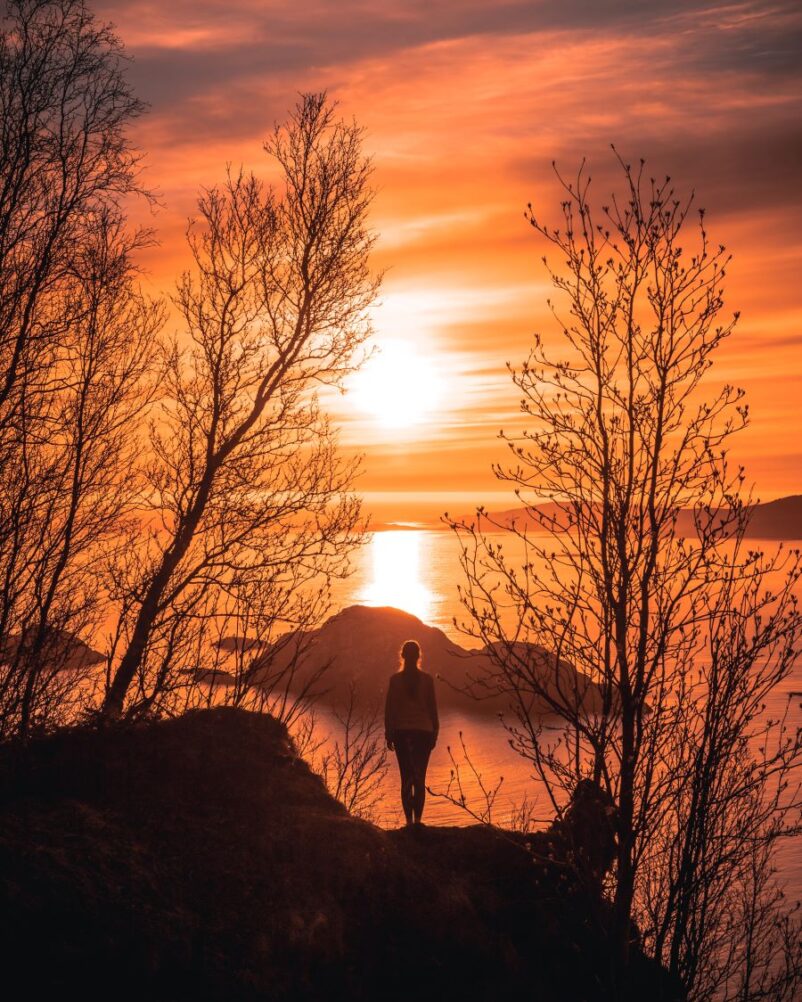
As we approach the end of our careers, many of us find ourselves grappling with a looming question: What to do after retirement?
That’s because even if we’re excited about this next stage of life, the transition from a career-focused life to one of leisure and freedom can bring about profound shifts in our identity. Often, that causes some anxiety about what to do after retirement as we ponder our purpose and place in the world. If that describes you, you’re not alone. It for sure describes me!
I spent decades climbing the corporate ladder, nurturing a family, and pursuing personal passions. But while retirement from the good ol’ 9-to-5 mentality along with my husband presents an opportunity for introspection and self-discovery, it’s also unnerving.
We’ve spent countless hours exploring our lives after raising three kids and juggling work with endless activities, and the expected slower pace of retirement life is somewhat unsettling. I mean, who am I after raising kids and no longer working?
I realize the question of “what to do after retirement” is complicated, and we’re already testing the waters as a soon-to-retired couple with multiple travel adventures, lifestyle changes, and vows of remaining active. We’re currently making a list of all the things we’ve said we’ve always wanted to do (both as a couple and separately as individuals) and talk about finally enjoying the good life.
But after the lull of the conversation and reassurances that I should be excited about this stage in my life, I still worry. I saw the spark leave the eyes of my own parents when they no longer lived the fast-paced life they had. And I know I don’t want to lose that same passion that came with deadlines, achievements, family activities, and yeah, even the stress. It’s ironic, isn’t it?
My husband dreams of leisurely days, sleeping in until noon, and waking up to set up a tee time and enjoy a round of golf. He has worked incredibly hard and has provided so well for our family, and it’s time for him to kick back. He deserves it.
But, is the quickly approaching post-career life enough? Is it enough for me to be happy? The thoughts of what to do after retirement rattle endlessly in my head, and I’m still not sure of the answer. One thing is for certain, retirement is coming…and soon.
It’s time to start envisioning the transition from a career-and-family-driven existence to a more open-ended and reflective lifestyle. I’ve made the turn (I think) and am starting to watch my intriguing journey of self-discovery as a woman in her 60s unfold.
And while staying true to my authentic self, I really, really hope I’ll like this new path. I’m likening this journey to writing a book, and beginning a new chapter about what to do after retirement. So, let’s begin.
Exploring the Identity Shift in Retirement
Retirement isn’t just about stepping away from work and work associates; it’s also a profound shift in identity. For many people, their careers have defined them for decades, shaping their self-esteem and sense of purpose.
Suddenly being untethered from that can bring about a seismic change in how they perceive themselves and their place in the world. This shift demands introspection and recalibration as individuals navigate the transition from being a professional to being retired.
Retirement also offers an opportunity to rediscover forgotten or neglected aspects of one’s identity. With newfound time and freedom, individuals can explore long-buried passions or pursue new hobbies that were previously unattainable due to work commitments.
Embracing this change by reframing retirement not as an end but as the beginning of a new chapter can help individuals construct a renewed sense of self – one shaped not by job titles but by personal fulfillment and growth.
This allows for an exploration of identities beyond what is often constrained by professional roles, paving the way for a more holistic understanding of self in retirement. It also helps retirees from feeling bored with life after deciding what to do after retirement.
Reflecting on Career and Life Achievements
As we approach retirement, it’s natural to reflect on our career and life achievements. This period offers a chance to look back on the experiences that have shaped us and the milestones we’ve reached.
Rather than simply basking in past glory, it’s important to consider how these achievements have influenced our personal growth and relationships.
By reflecting on both professional accomplishments and personal triumphs, we can gain a deeper understanding of our own values and priorities as we look forward as to what to do after retirement.
When contemplating our career and life achievements, it’s essential to acknowledge the challenges we faced along the way. Whether it was navigating through setbacks in our careers or overcoming personal obstacles, these experiences have contributed significantly to who we are today.
 Embracing the lessons learned from these challenges can help us approach retirement with a sense of gratitude for all that we’ve achieved as well as resilience for what lies ahead. It is through such reflections that we can gain clarity about how we want to spend our time in retirement, whether by pursuing new passions or continuing to make positive contributions within our communities.
Embracing the lessons learned from these challenges can help us approach retirement with a sense of gratitude for all that we’ve achieved as well as resilience for what lies ahead. It is through such reflections that we can gain clarity about how we want to spend our time in retirement, whether by pursuing new passions or continuing to make positive contributions within our communities.
Redefining Personal Values and Priorities
In retirement, many individuals find themselves redefining their personal values and priorities. This period of life offers the opportunity for introspection and reevaluation of what truly matters as part of the what to do after retirement journey. It’s a chance to shed societal expectations and focus on aligning one’s actions with deeply held beliefs.
Perhaps in earlier stages of life, monetary success or external validation took precedence, but now there is room to reprioritize relationships, mental well-being, and personal growth.
This process may also involve letting go of old habits or limiting beliefs that no longer serve a purpose. It’s about embracing authenticity and creating space for new experiences that resonate with one’s core values.
By reassessing personal values and priorities in retirement, individuals can shape a more fulfilling and meaningful way of living while setting the stage for continued personal evolution. It also drives joy vs. being unhappy with retirement.
Embracing New Roles and Responsibilities When Planning What To Do After Retirement
Embracing new roles and responsibilities in retirement can be a transformative experience. As we enter this new phase of life, it’s an opportunity to redefine our sense of purpose and fulfillment when deciding what to do after retirement.
Taking on new roles, whether as a mentor, volunteer, or caregiver, allows us to remain actively engaged in our communities while contributing meaningfully to others’ lives. Embracing these responsibilities can provide a sense of accomplishment and offer a renewed sense of identity beyond traditional career roles.
Moreover, embracing new roles in retirement can lead to personal growth and self-discovery. It offers the chance to explore long-dormant interests or pursue passions that were previously put on hold due to work commitments.
Whether it’s taking up a new hobby, learning a skill, or becoming more involved in advocacy or activism, finding fulfillment through these fresh responsibilities can revitalize one’s sense of purpose and provide a deeper connection with oneself and the world around them.
By embracing these new roles with an open mind and heart, retirees can find joy and satisfaction they never knew existed before this stage of life. Hopefully, by doing so, the often worrisome question of what to do after retirement is laid to rest and is one less thing to be concerned with.
Connecting with Community and Social Circles
As we transition into retirement, the importance of connecting with community and social circles becomes increasingly evident. This stage of life presents an opportunity to deepen existing connections and forge new relationships within our communities.
Engaging in community activities, volunteering, or joining social groups not only enhances our sense of belonging but also provides a platform for contributing to the well-being of others.
Moreover, maintaining strong social circles in retirement can significantly impact mental and emotional well-being. Surrounding ourselves with like-minded individuals who share similar interests can foster a sense of camaraderie and support.
Whether it’s through participating in book clubs, fitness classes, or hobby-based groups, these interactions can enrich our lives and offer new perspectives on how we define ourselves post-retirement. Building these connections doesn’t just fill our days when considering what to do after retirement; it allows us to continue growing as individuals even as we enter this new phase of life.
Maintaining Mental and Physical Well-Being Should Be Priority of What To Do After Retirement
Maintaining mental and physical well-being when choosing what to do after retirement requires proactive effort and a shift in mindset. While the absence of a structured work routine may seem liberating, it can also lead to a lack of purpose and drifting into unhealthy habits.
 Truth be told, this is the aspect that worries me the most when considering what to do after retirement.
Truth be told, this is the aspect that worries me the most when considering what to do after retirement.
Engaging in regular physical activity not only promotes fitness but also boosts mood and cognitive function. It’s important to explore new hobbies, stay socially connected, and set meaningful goals to maintain mental stimulation and combat loneliness.
Embracing mindfulness practices such as meditation or yoga can provide a sense of inner peace and reduce stress, contributing to overall well-being.
In addition to maintaining an active lifestyle, paying attention to nutrition becomes crucial during retirement. This is an ideal time to focus on a balanced diet that nourishes the body while indulging in cooking experiments or exploring new cuisines. I’ve already put my husband on notice that our eating habits have to change.
I may not be able to really control his, but I do know I can control mine, and is a priority going forward.
Cultivating a positive outlook toward aging is equally essential; embracing the wisdom gained over years while fostering gratitude for life experiences can lead to increased satisfaction with one’s journey through retirement.
Prioritizing self-care by scheduling regular health check-ups, practicing relaxation techniques, and seeking professional support when needed should be central components of retirement well-being maintenance.
Embracing a Fulfilling Retirement Identity
As I continue to wrap my head around what to do after retirement and realizing that my days of corporate glory (and stress) and full-time work is over, I am choosing to embrace the notion that a fulfilling retirement identity is not just about stopping work; it’s about defining and redefining who we are in this new phase of life.
Retirement offers us an opportunity to explore our passions, interests, and hobbies that may have taken a backseat during our working years. It’s a chance to create a new identity for ourselves based on what truly brings us joy and fulfillment.
Instead of clinging to the past or feeling lost without the structure of a career, retirees can embrace this time as an opportunity for personal growth and exploration.
In my case, I’m also somewhat adjusting to the reality that I am not, and may never be, a grandparent, as my independent-minded grown and mostly flown children have so far not chosen marriage or families as a goal. That means my schedule of what to do after retirement, at least now, doesn’t include having a “lolli” role that was something so near and dear to generations before. Instead, I have dogs. And that’s okay.
By discovering new interests, volunteering for causes we care about, or pursuing lifelong dreams, we can shape our retirement identity into something meaningful and rewarding instead of feeling depressed when contemplating what to do after retirement.
Embracing a fulfilling retirement identity means allowing ourselves to evolve and thrive in this new chapter of life, letting go of societal expectations and embracing the freedom to be true to ourselves.
I recently saw this message posted on social media (there was no attribution provided, so I can’t give credit). It spoke to me as I consider what to do after retirement.
I’m pledging to remember these 14 points and hope you’ll find them meaningful as well.
What To Do After Retirement: Finding My New Identity
I asked a friend who has crossed 70 and is heading toward 80 what sort of changes he is feeling in himself? He sent me the following:
- After loving my parents, my siblings, my spouse, my children and my friends, I have now started loving myself.
- I have realized that I am not “Atlas”. The world does not rest on my shoulders.
- I have stopped bargaining with vegetable & fruit vendors. A few pennies more is not going to break me, but it might help the poor fellow save for his daughter’s school fees.
- I leave my waitress a big tip. The extra money might bring a smile to her face. She is toiling much harder for a living than I am.
- I stopped telling the elderly that they’ve already narrated that story many times. The story makes them walk down memory lane & relive their past.
- I have learned not to correct people even when I know they are wrong. The onus of making everyone perfect is not on me. Peace is more precious than perfection.
- I give compliments freely and generously. Compliments are a mood enhancer not only for the recipient, but also for me. And a small tip for the recipient of a compliment, never, NEVER turn it down, just say “Thank You.”
- I have learned not to bother about a crease or a spot on my shirt. Personality speaks louder than appearances.
- I walk away from people who don’t value me. They might not know my worth, but I do.
- I remain cool when someone plays dirty to outrun me in the rat race. I am not a rat and neither am I in any race.
- I am learning not to be embarrassed by my emotions. It’s my emotions that make me human.
- I have learned that it’s better to drop the ego than to break a relationship. My ego will keep me aloof, whereas with relationships, I will never be alone.
- I have learned to live each day as if it’s the last. After all, it might be the last.
- I am doing what makes me happy. I am responsible for my happiness, and I owe it to myself. Happiness is a choice. You can be happy at any time, just choose to be!
I decided to share this for all my friends. Why do we have to wait to be 60 or 70 or 80, why can’t we practice this at any stage and age?
If you enjoyed this blog about what to do after retirement, here are other related articles you might enjoy as well.
Work and Retirement: Finding the Balance of Security and Happiness
- Discover Your Perfect Retirement Focus
- Plan Now to Avoid Overspending and Retire Without Regrets
- Unlock Hidden Opportunities: Discover the Best Part-Time Jobs for Retirement
- The Surprising Benefits of Downsizing Home: Unlock Your Retirement Happiness
- The Rise of Unretiring: Why Are People Coming Out of Retirement
- When to Retire—5 Reasons Why Timing is Everything!
Written by
Robin McClure
Robin is the author of 7 parenting books and has 3 grown children, 3 spoiled rescue dogs, and a very understanding husband. She holds a bachelor's degree in journalism and a master's degree in communications, and spends her time writing, drinking coffee, and planning the next grand adventure.



